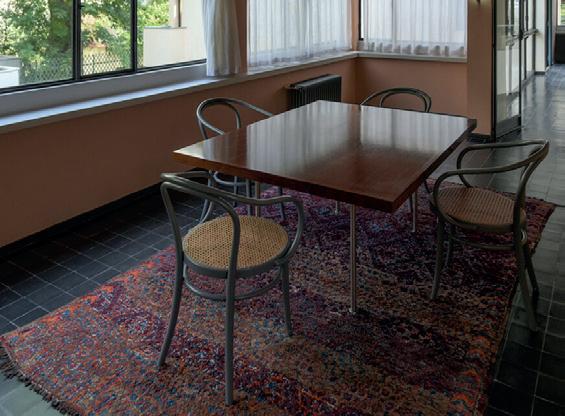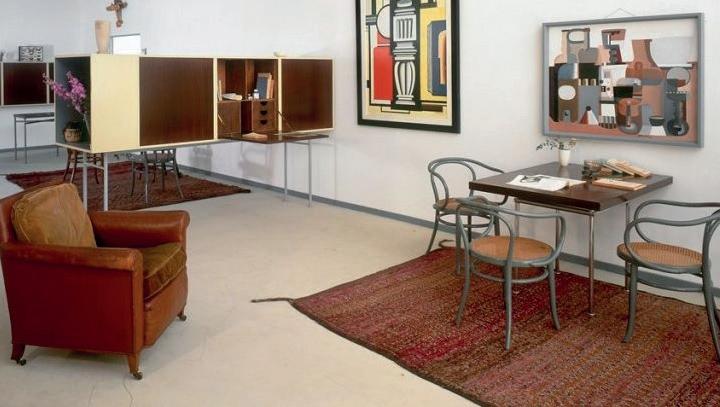
3 minute read
Berber RuGs From Morocco
By Piotr Wesolowski
Far from the markets of the Middle East and Central Asia; in the world unknown to the merchants of silk and opulent Oriental carpets, thrives a world of textile culture of a different kind. The various Berber tribes of the Moroccan Atlas have for millennia produced rugs of extraordinary aesthetic quality and spiritual depth. Undisturbed by modernity, the Berbers create masterpieces in wool that show both sublime colour
Advertisement
‘Berber Rug from Morocco’ sensitivity and nearly ascetic restraint in their minimalistic patterns sketched against typically plain backgrounds. Their indisputable artistry was already noticed in the late 19th century when, lured by the irresistible charm of Orientalism, many westerners travelled to north Africa. They were astounded by the richness of colour and the complexity of design: the fabric of Morocco. It was however the Swiss French architect and interior designer Charles-Édouard Jeanneret who introduced the Berber tribal rugs to the world.

Better known as Le Corbusier, Jeanneret incorporated these rugs into his ultra-modern designs where the warmth of the material and the whimsicality of the primitive patterns contrasted the austerity of his interiors.
‘Le Corbusier : Villa La Roche, Paris (1924)’ The importance of his novel approach which broaches two seemingly irreconcilable aesthetics had an undeniable impact on the visual arts of the period. It is no coincidence that the works of the early 20th century western art appear so strongly to reflect ideas rooted in ancient cosmology of the Berber tribes from the Atlas Mountains .










For more information or to have an informal chat about joining Body Shop At Home please call Sue Hutchison on 07817 206418 or email suehutchison45@hotmail.co.uk

Deceased Houses Respectfully Cleared




Speak Out Languages is on a mission to help 50 people speak a new language by Christmas! NEWSFLASH:
8 reasons to get involved: 1. Satisfy your wanderlust. Whisk yourself off to Spain, Italy, France or Germany from the comfort of your own home. 2. Keep your brain active. Learning a new language has been proven to increase brain function, even delaying the onset of dementia. 3. Speak practical, useful language from the word go, rather than focus on endless grammar exercises and tests. 4. Meet new people without leaving the sofa. 5. Discover a new hobby and open up a new world of opportunities. 6. IT’S NOT LIKE SCHOOL. 7. Get yourself ready to travel for the when the world opens up again. 8. Most importantly, have a lot of fun!






